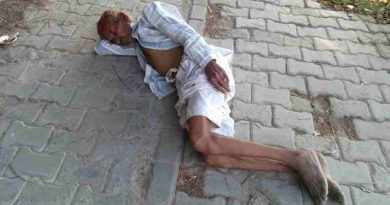All That You Want to Know About Zika Virus

In May 2015, Brazil reported its first case of Zika virus disease. Since then, according to WHO, the disease has spread within Brazil and to 22 other countries and territories in the region.
Key facts
- Zika virus disease is caused by a virus transmitted by Aedes mosquitoes.
- People with Zika virus disease usually have a mild fever, skin rash (exanthema) and conjunctivitis. These symptoms normally last for 2-7 days.
- There is no specific treatment or vaccine currently available.
- The best form of prevention is protection against mosquito bites.
- The virus is known to circulate in Africa, the Americas, Asia and the Pacific.
Signs and Symptoms
The incubation period (the time from exposure to symptoms) of Zika virus disease is not clear, but is likely to be a few days.
The symptoms are similar to other arbovirus infections such as dengue, and include fever, skin rashes, conjunctivitis, muscle and joint pain, malaise, and headache. These symptoms are usually mild and last for 2-7 days.
[ India Takes Steps to Deal with Zika Virus ]
Transmission
Zika virus is transmitted to people through the bite of an infected mosquito from the Aedes genus, mainly Aedes aegypti in tropical regions. This is the same mosquito that transmits dengue, chikungunya and yellow fever.
Zika virus disease outbreaks were reported for the first time from the Pacific in 2007 and 2013 (Yap and French Polynesia, respectively), and in 2015 from the Americas (Brazil and Colombia) and Africa (Cape Verde).
In addition, more than 13 countries in the Americas have reported sporadic Zika virus infections indicating rapid geographic expansion of Zika virus.
Diagnosis
Zika virus is diagnosed through PCR (polymerase chain reaction) and virus isolation from blood samples. Diagnosis by serology can be difficult as the virus can cross-react with other flaviviruses such as dengue, West Nile and yellow fever.
Prevention
Mosquitoes and their breeding sites pose a significant risk factor for Zika virus infection. Prevention and control relies on reducing mosquitoes through source reduction (removal and modification of breeding sites) and reducing contact between mosquitoes and people.
This can be done by using insect repellent; wearing clothes (preferably light-coloured) that cover as much of the body as possible; using physical barriers such as screens, closed doors and windows; and sleeping under mosquito nets.
It is also important to empty, clean or cover containers that can hold water such as buckets, flower pots or tyres, so that places where mosquitoes can breed are removed.
Special attention and help should be given to those who may not be able to protect themselves adequately, such as young children, the sick or elderly.
During outbreaks, health authorities may advise that spraying of insecticides be carried out. Insecticides recommended by the WHO Pesticide Evaluation Scheme may also be used as larvicides to treat relatively large water containers.
Travellers should take the basic precautions described above to protect themselves from mosquito bites.
Treatment
Zika virus disease is usually relatively mild and requires no specific treatment. People sick with Zika virus should get plenty of rest, drink enough fluids, and treat pain and fever with common medicines.
If symptoms worsen, they should seek medical care and advice. There is currently no vaccine available.
Meanwhile, WHO Director-General, Margaret Chan, will convene an International Health Regulations Emergency Committee on Zika virus and observed increase in neurological disorders and neonatal malformations.
The Committee will meet on Monday, February 1, in Geneva to ascertain whether the outbreak constitutes a Public Health Emergency of International Concern.




